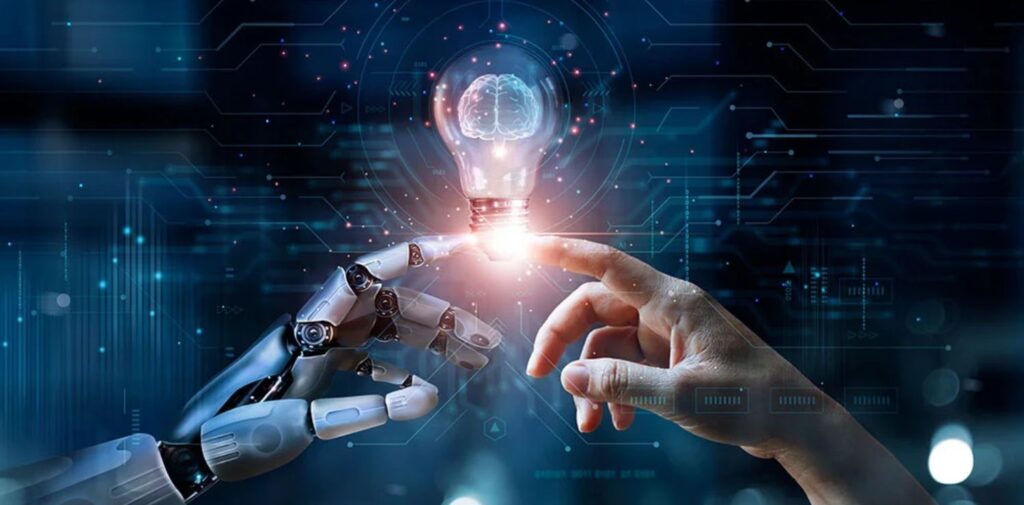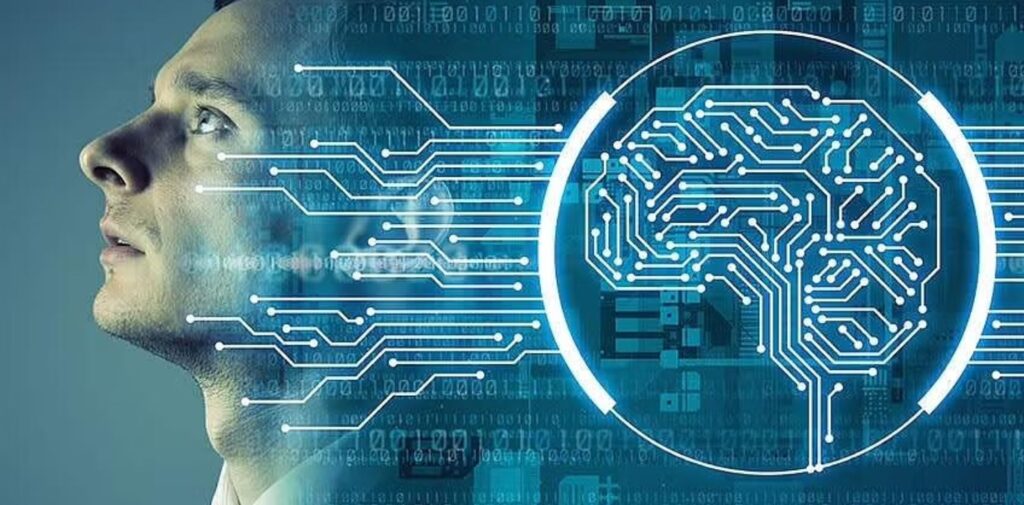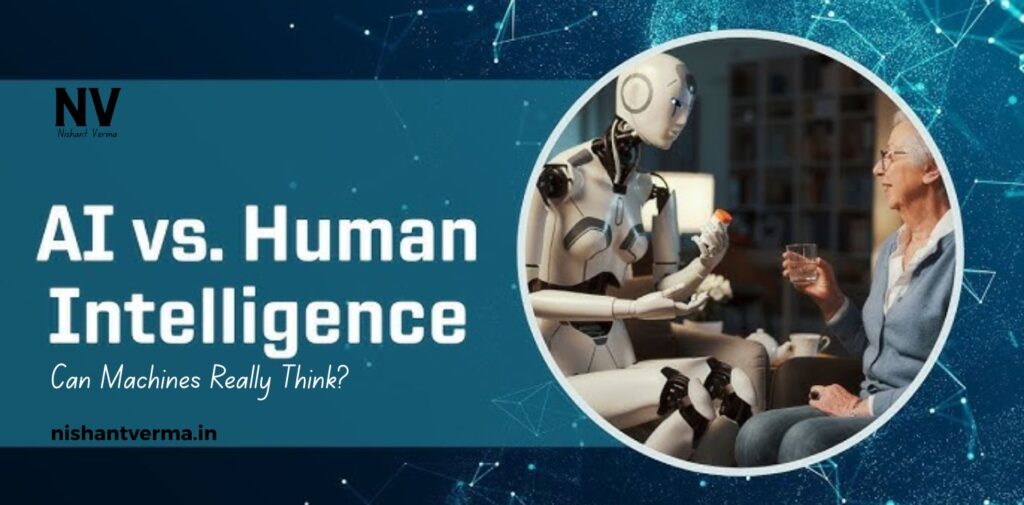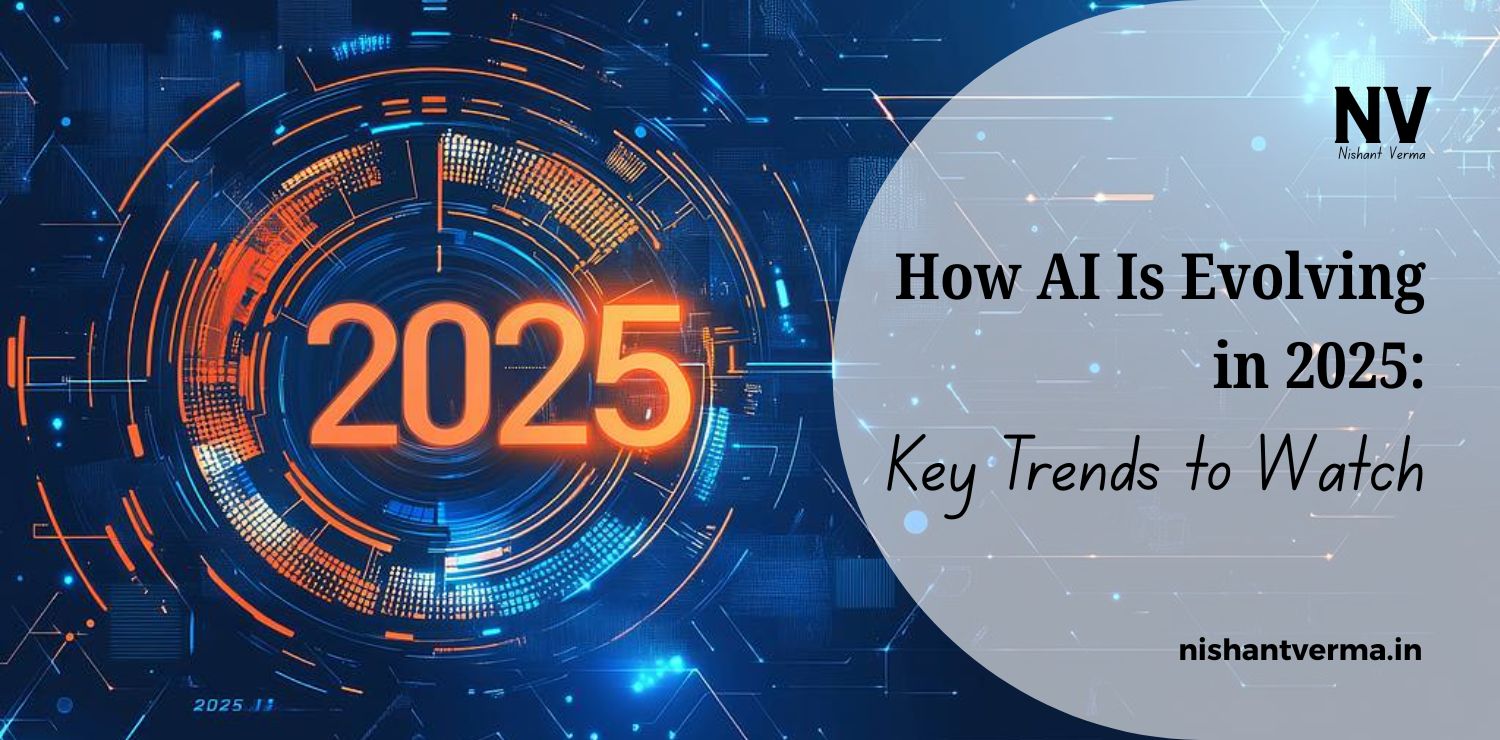In recent years, Artificial Intelligence, or AI, has become a part of our daily lives. From mobile apps like Google Assistant and Siri to recommendations on YouTube and online shopping, AI is everywhere. But this rise in smart technology has led many to ask a deep question – can machines really think like humans? Is it possible for AI to match or even surpass human intelligence? Let’s understand this topic in simple words and from an Indian perspective.
What is Artificial Intelligence?
Artificial Intelligence is the technology that allows machines or computers to perform tasks that usually require human intelligence. These tasks include learning from experience, understanding language, solving problems, and making decisions. AI is used in various fields such as healthcare, education, banking, agriculture, and even in our homes.
In India, AI is being used in areas like weather forecasting, helping farmers improve crop yields, and even in managing traffic in big cities. But does this mean AI is truly intelligent like us? Or is it just following the instructions given by programmers?

How Human Intelligence Works
Human intelligence is a gift of nature. We are born with the ability to learn from experience, feel emotions, think creatively, and understand the world around us. Humans can adapt to new situations, think abstractly, and develop social relationships. We learn from both success and failure, and we use our emotions and instincts to make decisions.
Our brain is not just a machine. It’s a combination of logic, emotion, creativity, and memory. When we make decisions, we often consider morals, ethics, and social values – something that AI cannot truly understand.
What AI Can Do Better Than Humans
AI is not human, but in some areas, it can perform better than us. For example, AI can analyze large amounts of data in seconds. It doesn’t get tired, it doesn’t forget, and it can work 24×7 without breaks. In sectors like medical diagnosis, AI can sometimes detect diseases more accurately than doctors by analyzing thousands of reports and images quickly.
In customer service, AI-powered chatbots can handle thousands of queries at once, which would be impossible for human employees. AI is also making our smartphones smarter, helping us with navigation, and even translating languages in real time.
AI is very fast, efficient, and accurate when it comes to doing specific tasks. But it still lacks one important thing – true understanding.

Limitations of AI: Why It Is Not Equal to Human Intelligence
Even though AI is powerful, it has limitations. It cannot feel emotions like love, anger, or happiness. It cannot think out of the box or create something truly new without being told how to do it. AI learns from data, but if the data is wrong or biased, it can make wrong decisions too.
Also, AI cannot understand the culture, values, and emotional aspects that make us human. For example, a robot can be programmed to teach a class, but it cannot understand the emotions of students or inspire them like a good teacher can. In India, where education is not just about facts but also about values and relationships, this emotional touch is very important.
Another big challenge with AI is that it cannot take responsibility. If an AI system makes a mistake, who will be blamed – the machine, the programmer, or the company? This is a serious concern, especially in sectors like law, medicine, or transportation.
Can Machines Ever Think Like Humans?
This is the heart of the debate. Can machines really “think” like us? The answer is – not yet. AI can mimic human behavior to some extent, but it doesn’t truly understand what it is doing. It does not have consciousness, emotions, or a sense of right and wrong.
For example, a chess-playing AI can defeat the world’s best players, but it doesn’t know it’s playing a game. It doesn’t feel happy when it wins or sad when it loses. It is just following a program. Thinking, in the human sense, involves more than solving problems. It means understanding life, asking deep questions, and forming relationships.
In India, where traditions, emotions, and social values are deeply rooted, human thinking is much more than logic. Our thoughts are shaped by culture, family, and faith – things that machines cannot understand or experience.

The Future: Humans and AI Together
Instead of seeing AI as a threat to human intelligence, we should look at it as a partner. AI can assist us, make our work easier, and help us make better decisions. But it cannot replace the human mind and heart.
In India, the government and many startups are working to use AI for public welfare – in agriculture, health care, education, and safety. For example, AI tools are helping doctors in rural areas, supporting students with personalized learning, and even helping in disaster management.
At the same time, we need to make sure AI is used ethically. There should be clear rules and laws to ensure AI does not harm society. Students should be taught not only how to use AI but also to understand its limits and dangers.
Conclusion: AI is Smart, But Human Intelligence is Special
So, can machines really think? The answer is – they can simulate thinking, but they do not truly “think” like us. AI is a tool created by humans to solve problems, but it does not have feelings, understanding, or self-awareness. Human intelligence is still far ahead in terms of creativity, emotion, and morality.
AI is smart in its own way, and it is here to stay. But we must remember – while machines can help us, it is the human mind and heart that truly guide our society.
In a country like India, where emotional intelligence, tradition, and values play a huge role, human intelligence will always have a special place. Let’s use AI wisely, not to replace humans, but to support and empower them.




